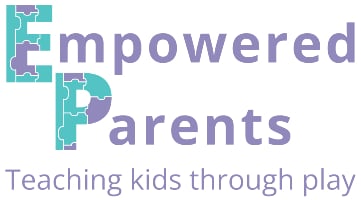

What is school readiness and how exactly do you know if a child is ready for school or not?
This guide, written for teachers and parents, is an overview and includes a school readiness checklist for easy reference.
Read on to find out what school readiness is, how to know if a child is ready and what you can do to help kids achieve it .
In the field of early childhood education, school readiness refers to whether a child is ready to benefit from formal education in a group context.
School readiness means a child has learned the necessary skills to be able to cope and thrive in the first grade of school – known as Grade One or First Grade in most countries.
The first grade of school is the first formal year. All years leading up to this grade are considered informal schooling.
The year before the first grade is also considered an important year and is basically a semi-formal preparation for starting formal schooling .
Depending on what country you live in, this class may be referred to as Kindergarten, Reception Year, Grade R, Grade 0 or something similar.
While most school readiness skills checklists out there are for kindergarten, this year should not be mistaken as the official start of formal schooling , as kindergarten should still include many play-based learning experiences.
The checklist below can be used as a general Kindergarten readiness checklist. However, some skills – such as sound and letter recognition – will still be developing during this year.
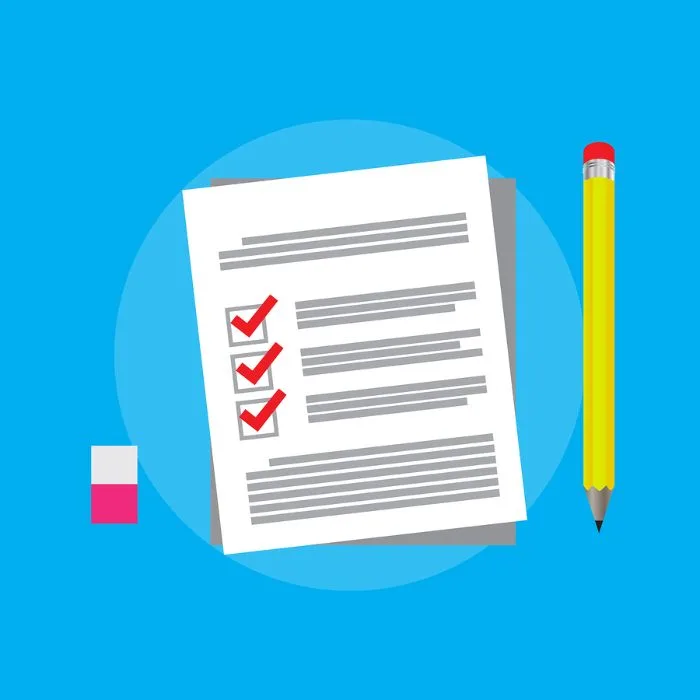
Unlike a high school pupil taking a sit-down entrance exam, a young child’s holistic development cannot be measured with a test.
This is especially true because a huge part of their readiness has to do with physical, emotional and social maturity.
There are no exact criteria and no actual way to establish 100% readiness because all children are completely different and develop at different rates. They also have different strengths and weaknesses.
All the readiness checklists online have different criteria, although they share many similarities. A checklist is merely a general guide.
Therefore children are ready for school when:
Readiness is certainly not an exact science. It is determined by understanding a child and determining whether you think they will cope in elementary/ primary school.
Some schools prefer to do a school readiness assessment with young children going into the first grade .
The test is usually quite short as children of this age have a limited concentration span.
This kind of assessment usually involves testing for specific skills such as a child’s auditory memory or phonological awareness (e.g. hearing rhyming sounds).
Assessments may provide some insight into a child’s ability. There will not be a strict measuring of criteria but rather an opinion formed of the child’s predicted general ability to fit into a formal grade.
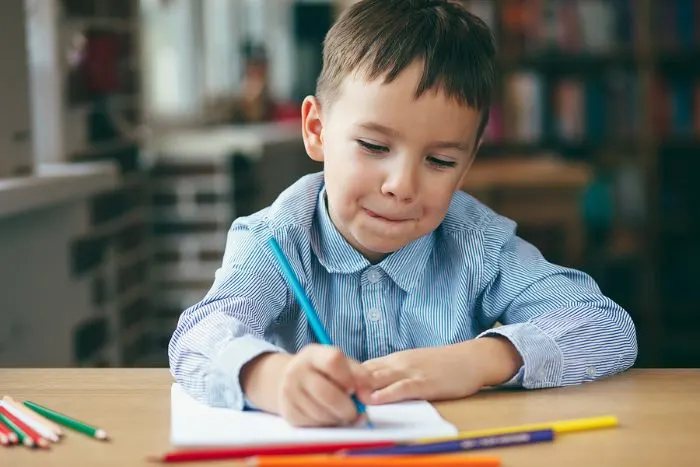
In order for children to be considered ready for school, they must have developed their emotional, social, physical and cognitive skills .
A child who is ready for school has well-developed:
The following is a rough guide of criteria for determining school readiness.
The milestones are set out in the four developmental areas – emotional, social, physical and cognitive.
This checklist should give you a good idea of where your child is at.
For children to reach their full potential and benefit from formal education, being ready is extremely important.
When children are pushed into a grade they are not ready for, not only does it not benefit them, but they can also regress.
They may struggle to keep up academically or emotionally, which may negatively affect their self-worth and emotional development.
They might even struggle to socialize if they are not yet mature enough for the group, which has negative effects on their social development.
Even if a child attends preschool, parents can also play a big role in helping prepare for school.
I firmly believe that children learn far more from their parents than they do from anyone else. Parents are a child’s first connection with the world. They learn non-stop by watching and interacting with them.
This does not mean that parents ought to be stressing their children out while trying to get them ready. As you will read here, hard work and learning is all about play.
Read on to find out how to get your children ready for school.
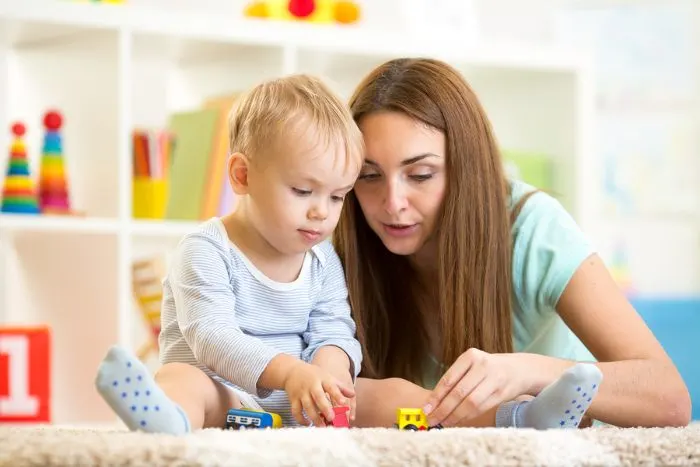
School readiness is not something children suddenly acquire when they come of age. It is an accumulation of all the learning and skills a child has picked up right from birth.
Being ready is more about general maturity and skill level than it is about learning specific things or having certain knowledge.
This is one of the reasons I don’t think parents need to follow ‘programs’ for preschoolers. These programs usually come with a set of themes and all the activities are laid out day by day, to be followed in a certain sequence.
Most often, they get put aside when it becomes too much effort to follow or life gets in the way.
Preschool is not rigid and neither should a child’s time at home be.
So just how do children learn all these wonderful skills that will get them ready for formal education?
Through none other than good old-fashioned play.
This is sadly becoming a bit underrated in today’s society of packing children’s schedules with non-stop extra activities and introducing formal activities such as reading and writing too early.
Play is the most important activity for your child’s overall development.
What is important is that your child has ample opportunity to engage in all types of play.
There should be sufficient time for free play, where your child decides what to play and where to play, and there should be time for adult-guided activities.
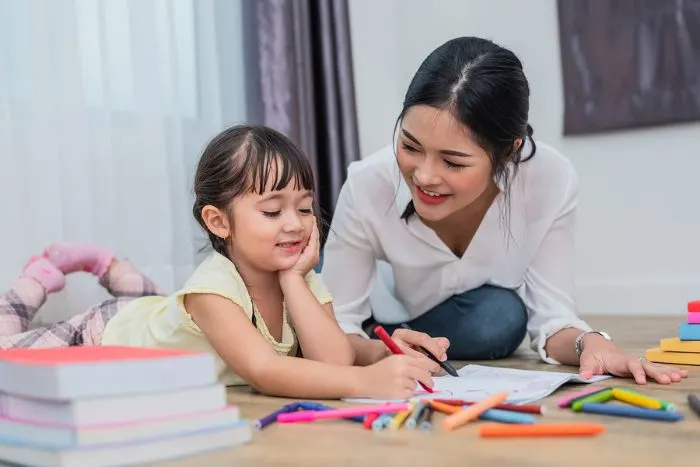
Any play activity that you engage in with your child or any free play session your child engages in is part of getting ready for school.
Where you can make a difference is in providing activities for your child that are varied and therefore work on different skills.
You don’t necessarily need to be playing with your child all the time.
Sometimes it is as simple as taking out different materials or making suggestions and offering new ideas. Other times, you will want to really get involved and do an activity together or play a game to work on a specific skill.
The most important thing is that you are aware of the skills children need to learn before formal schooling and that you try wherever possible to create a play opportunity to work on those different skills.
In a nutshell, your children need to learn these basic skills through play:
Everything your child needs to do at school will rely on these basic skills. Something as simple as holding a pencil and writing requires well-developed gross motor, fine motor and visual perceptual skills.
In order to learn to read, children need excellent auditory and visual perception. Learning letters and the sounds they make is not all there is to reading. These are just a few things involved in learning to read:
Many tasks at school require a combination of different skills so the best chance you can give your child is to ensure all their basics are in place.
Many of these skills will be learned naturally through free play; however, they should also be learned through adult-guided play-based games and activities.
You can look up all the skills mentioned above and find activity ideas to work on all these skills.

If you go through the checklist and feel your child may not be ready, don’t worry or feel you have done something wrong. I have taught many children who repeated a preschool or kindergarten grade and went on to do well in school.
The younger the child is when repeating, the easier it will be. Repeating a grade higher up (e.g. 5th or 6th) has more damaging effects on a child as they then struggle with feeling incompetent and losing their peers in their grade.
The worst thing you can do is push your child up if it is clear he or she will struggle. Playing catch up all the time and feeling incompetent and incapable will not help their development in the long run.
Repeating an early grade is not serious at all. Simply let it be if necessary and, along with the school, keep helping your child as best as you can.
These are very generalized guidelines, but if your child displays some of these characteristics, he or she may need extra time to mature:
I hope you found this readiness-for-school checklist useful.
The information in this article is based on my own qualifications and experience in teaching, and is also backed by the information shared by Martie Pieterse in her book “Language and School Readiness” as well as the book “Total Learning: Developmental Curriculum for the Young Child“, by Joanne Hendrick.
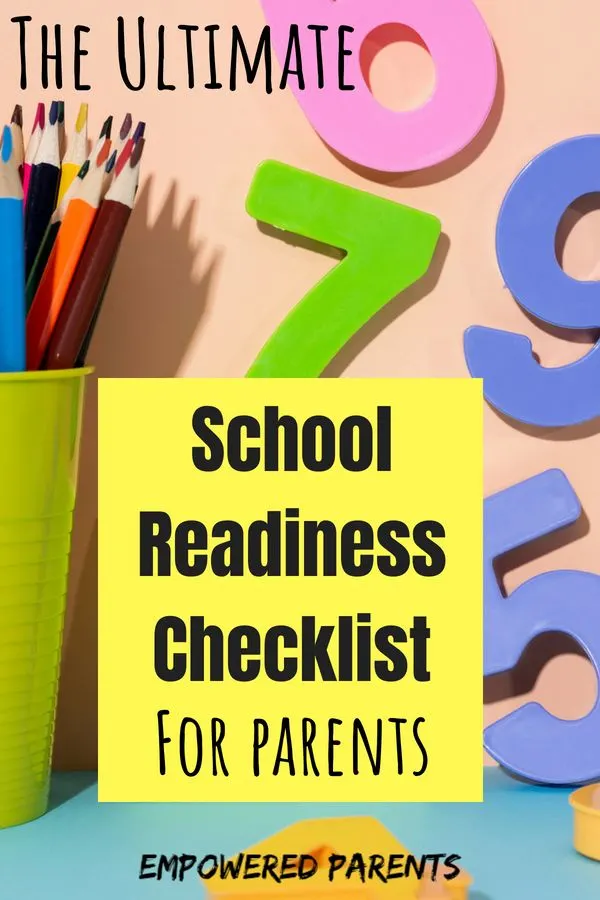
Posted on Last updated: 13 August 2024